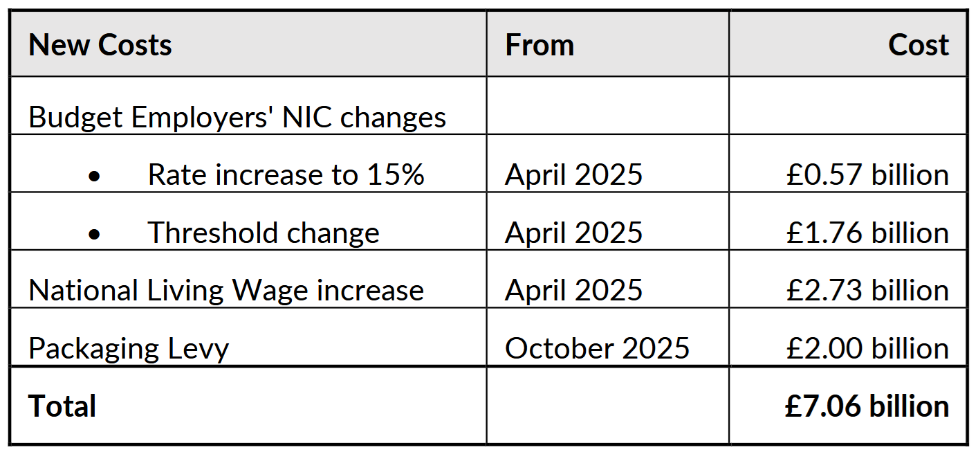The British Retail Consortium is warning of the impact that both
the Budget and upcoming regulatory changes could have on
part-time jobs in the retail industry. Retail remains a vital
source of employment right across the country; it is the largest
private sector employer and the industry and its supply chains
account for over a third of local jobs in 20% of parliamentary
constituencies*.
There are currently over 1.5 million part-time jobs in retail, a
little over half of all retail jobs. This includes students
making extra money during their studies, parents working around
childcare, and seasonal workers providing vital support during
the peak trading periods.
One in ten of these jobs, up to 160,000 roles, could be at risk
of being lost over the next three years as a result of the rising
costs of employment, driven by measures announced at the last
Budget. Rising employer National Insurance Contributions (NICs)
and National Living Wage will add £5bn to retailers' labour costs
in 2025 alone, putting pressure on the industry to cut back on
employment.
Part-time roles are particularly susceptible to the upcoming
changes in the employer NICs thresholds, with retailers to be
taxed for any employee earning more than £5,000 – down from the
current level of £9,100. This will make it significantly more
expensive to hire part-time workers than previously. These
effects would be compounded by some of the proposed changes under
the Employment Rights Bill, which could force firms to reduce the
number of local, flexible jobs. This would have the biggest
impact on part-time workers, including seasonal and student jobs.
Almost one fifth of retail colleagues are under the age of 25,
making the industry a vital first step on the career ladder for
hundreds of thousands of young people. However, with up to one in
ten part-time jobs at risk, in addition to many entry-level
roles, many young people could miss out on these opportunities.
This call to protect part-time jobs comes as the British Retail
Consortium launches its 2025 Manifesto for Retail
**, which outlines a path for the retail industry to
help kickstart investment in growth, people, and sustainability
across the UK.
Helen Dickinson, Chief Executive at the British Retail
Consortium, said:
“Retail is a key source of employment right across the economy.
The industry and its supply chains account for a third of jobs in
one-fifth of UK constituencies and retail plays a vital role in
upskilling the workforce and boosting productivity growth,
currently spending £4 billion a year on training. Retail has long
offered the first rung of the career ladder to hundreds of
thousands of young people, playing a vital role in communities up
and down the country. However, between rising employer National
Insurance Contributions, higher NLW costs, and incoming
employment regulations, the government may be kicking away the
ladder for the next generation. One in ten part-time retail roles
are now at risk of being lost.
“Retailers face a mountain of costs from the Budget and while
they continue to absorb costs where they can, higher prices and
job losses are inevitable. If the government can find ways of
mitigating the £7bn of costs facing the industry this year, as
well as ensuring a pragmatic approach to the Employment Rights
Bill that focuses on tackling unscrupulous employers, protecting
employees while supporting employment, then many jobs would be
saved.”
-ENDS-
- “One in five parliamentary constituencies rely on [retail]
and its suppliers for more than a third of their employment” (P6)
– CBI – Making a positive impact: The
contribution of retail & wholesale to communities and the
economy.
- BRC - A Manifesto for Retail
2025 – Outlines the huge contribution that the retail
industry makes to both the Exchequer and the economy at large.
The industry's priorities remain investment in Growth, People
and Sustainability, and the manifesto outlines how the industry
can get there.
£7bn costs in 2025 are as below:

